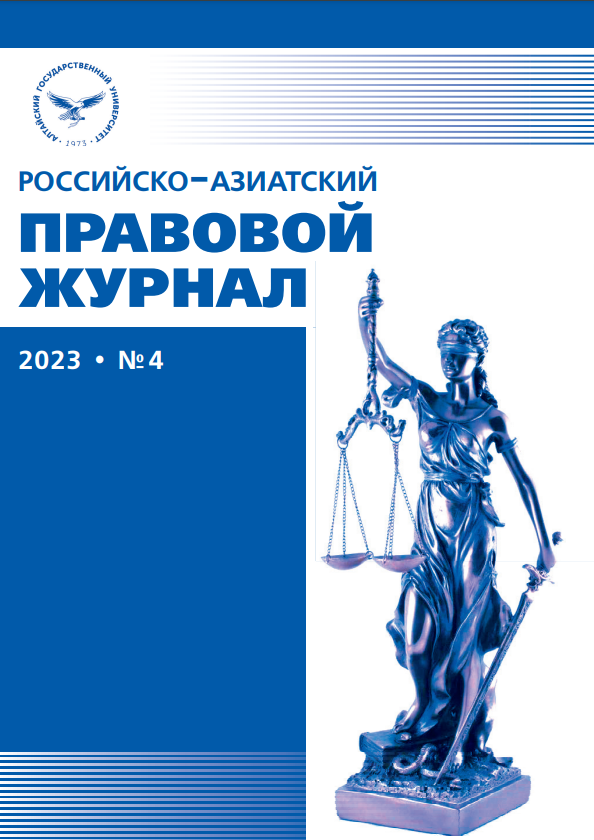FEATURES OF DISMISSAL OF REMOTE WORKER UNDER CH. 1 ART. 312.8 OF THE LABOR CODE OF THE RUSSIAN FEDERATION
УДК 349.227 ББК 67.405.112.4
Abstract
The development of scientific and technological progress leads to an increase in the percentage ofremote labor relations. In turn, the legal norms governing this type of atypical forms of employment arestill under formation. In particular, there are special grounds for terminating an employment contract atthe initiative of an employer with a remote employee. The issue of termination of the employment contractdue to circumstances related to the guilty acts of the employee has always received a sufficient amountof attention from both the legislator and scientists due to the fact that the employee of such a situation isin a very vulnerable position. At the same time, there are more grounds for terminating an employmentcontract with a remote employee than with an employee working in the office at the employer's location. Consequently, this issue requires more detailed legal regulation in order to prevent the inequality of therights of remote and traditional employees. In the article, the author analyzes some problems arising fromthe dismissal of a remote worker under Part 1 of Art. 312.8 of the Labor Code of the Russian Federation, lawenforcement practice, and also suggests ways to improve labor legislation in this area.
Downloads
References
Заржицкая Л.С. Уважительные причины: трактовка понятия в трудовом праве // Мировой судья. 2019. №9. // Консультант плюс. URL: clck.ru/34ZBUV (30.05.2023).
Пантюхина А.П. Актуальные проблемы расторжения трудового договора за прогул // Ежедневник трудового права. 2014. №9. URL: elibrary.ru.https://clck.ru/33quET (23.03.2023).
Агапов Д.А. О качестве законодательной дефиниции Дисциплинарный проступок работника / /Юридическая техника. 2007. №1. cyberleninka.ru.https://clck.ru/33rsjy (25.03.2023).
Сорокин А. Дистанционные работники: анализ споров по дисциплине // Трудовое право. 2015. №1. URL: top-personal.ru.https://clck.ru/3478f2 (11.04.2023).
Панарина М.М. Актуальные вопросы дистанционной правовой работы юриста: перспективы развития правового фриланса в современных условиях // Вестник Воронеж. гос. ун-та. Серия: Право. 2019. №4. С. 126.
Степанов В. Дистанционные работники — новая категория работников в российском трудовом праве // Трудовое право. 2013. №6. С. 11.
Russian-Asian Law Journal is a golden publisher, as we allow self-archiving, but most importantly we are fully transparent about your rights.
Authors may present and discuss their findings ahead of publication: at scientific conferences, on preprint servers, in public databases, and in blogs, wikis, tweets, and other informal communication channels.
Russian-Asian Law Journal allows authors to deposit manuscripts (currently under review or those for intended submission) in non-commercial, pre-print servers such as ArXiv.
Authors who publish with this journal agree to the following terms:
- Authors retain copyright and grant the journal right of first publication with the work simultaneously licensed under a Creative Commons Attribution License that allows others to share the work with an acknowledgement of the work's authorship and initial publication in this journal.
- Authors are able to enter into separate, additional contractual arrangements for the non-exclusive distribution of the journal's published version of the work (e.g., post it to an institutional repository or publish it in a book), with an acknowledgement of its initial publication in this journal.
- Authors are permitted and encouraged to post their work online (e.g., in institutional repositories or on their website) prior to and during the submission process, as it can lead to productive exchanges, as well as earlier and greater citation of published work (See The Effect of Open Access).








